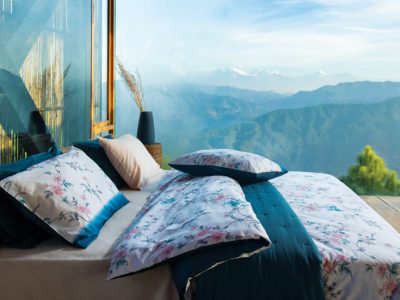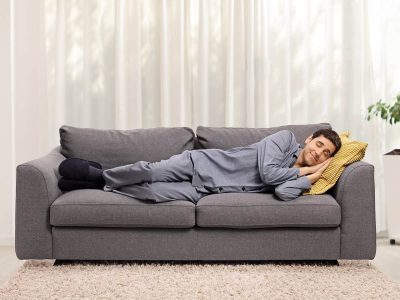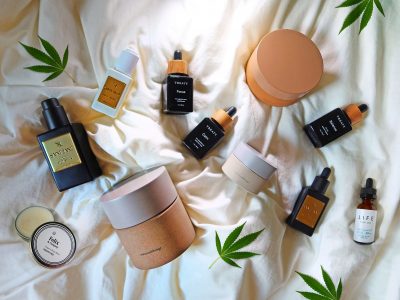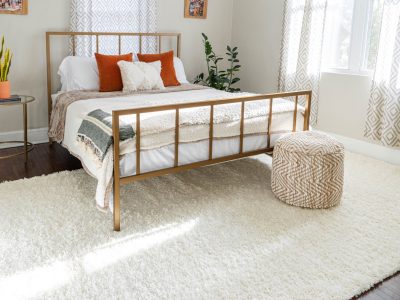This past decade has seen a significant increase in the use of social media platforms, and how we use social media is having a major impact on our sleep patterns. There are a number of ways that social media can disrupt sleep, and we’ll examine those in this post. We’ll go over the following topics:
- Reasons why it’s important to limit screen time before going to bed.
- How social media influences our sleep patterns and can contribute to sleep deprivation, as well.
- Tips for reducing the negative effects of social media on sleep.
Social media and sleep
How many of us have admitted to checking our phones just before going to bed to check Facebook, Instagram, or Twitter? Sleeping with a cell phone in the bedroom has become the norm for a large number of people, young and old.
You are reading: Sleep And Social Media: Can Social Media Use Affect Our Sleep?
Social media browsing has become one of the most prevalent pre-sleep habits, according to poll results. Constant connectedness can have a significant detrimental impact on our ability to have a good night’s sleep, even if it makes us feel relaxed.
Social media use has increased dramatically since 2012, with 70% of adults and 90% of younger persons using it at the previous count (2020).
In addition, the amount of time spent on social media has skyrocketed among those aged 16 to 64, going from 90 minutes per day in 2012 to almost two and a half hours per day presently. This is around a sixth of our whole waking time!
Even if it’s bedtime, what happens when you’re still connected? What exactly is the impact of social media on your slumber? You may be unable to obtain a decent night’s sleep because of your bedtime social media activities.
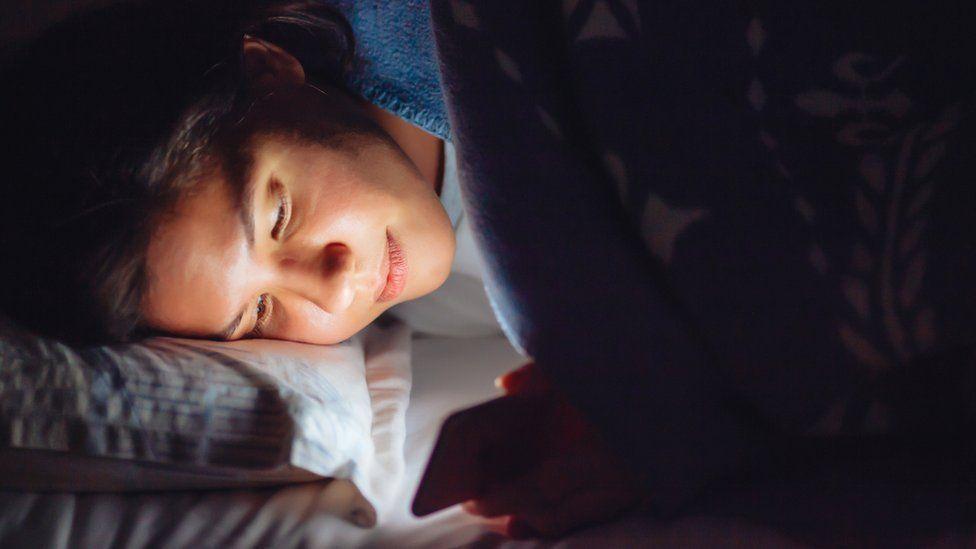
Mobiles and melatonin: how looking at your phone can affect your sleep
Phone screens have long been known to interfere with sleep. Using a mobile phone in the daytime is ideal since it emits a lot of blue light, which is beneficial for keeping us productive and focused.
However, at night, this isn’t the best option. Light exposure signals us to be awake, so staring at your phone before bedtime is sending the message that it’s not time to go to sleep yet.
Melatonin, a hormone produced by our brains as natural light levels fall, causes our alertness to decline in the hours before night. So that our bodies may relax and prepare for sleep, it sends this message to our brains.
The blue light emitted by mobile phones has the greatest impact on your melatonin levels. Melatonin synthesis is inhibited and sleep is postponed since it tells your brain it’s daylight.
Sleep deprivation causes us to remain awake and attentive, in a condition known as ‘cognitive arousal’, even when we are not actually tired.
Cognitive arousal: getting wound up when you should be winding down!
Even if your brain is prepared for sleep when you go to bed, the constant stimulation you receive from social media tells your brain and body that it should not rest.
It’s not only the act of checking social media that keeps you awake; the nature of the content itself also plays a significant role.
The impact has on you emotionally, socially, and cognitively all play a significant role in determining how it impacts your sleep.
It’s better to read through a newsfeed before going to sleep rather than become embroiled in a heated Twitter dispute.
Similar to chat sites, photo-sharing platforms (which often include more passive engagement) will have less of an impact on sleep than those that aggressively engage their users to answer.
That depends on how much effort is required on your part to engage in the conversation. It is possible to enjoy looking at images in a relaxed manner. Global politics debates will necessitate more active participation.
Use social media before bedtime, but steer clear of areas that require a high level of interaction and stimulation, such as Facebook or Twitter.
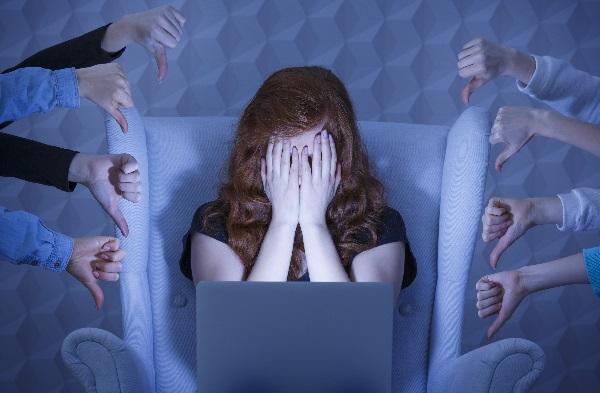
Delayed bedtime: time spent surfing should be spent snoozing
Read more : What Is Narcolepsy? What Are The Symptoms Of Narcolepsy?
Despite your best intentions, how many times have you found yourself sucked into the world of fascinating videos, images, humorous comments, group chats, and newsfeeds on your social media accounts just before going to bed? And in a matter of minutes, an hour or two had passed.
In order to fall asleep, it takes us longer, the quality of our slumber suffers and we wake up feeling exhausted.
Because your bedtime has been shifted and you’ve also missed some critical sleep time, you can expect a shorter night’s sleep as a result. It is well-known among adolescents that social media disrupts sleep, and recent research has shown similar impacts in adult age groups as well.
This is a horrible mix for those who are still in school and have early start times. Adults may find themselves waking up later, which reduces the amount of time they have to get things done the following day.
Fear of missing out (FOMO)
More than half of young people’s internet time is spent on social media, according to research conducted in 2012. Teenagers’ nighttime social media use is driven by FOMO (fear of missing out) and social embarrassment. Nobody is online except for you, so what are you doing that no one else is?
Adult studies are beginning to show comparable outcomes; FOMO is not just a youthful phenomenon.
You can lose sleep wondering about what you’re missing and what other people think of you because you’re not available, which can make FOMO seem like a no-win situation. You log off, but you feel bad because you’re not responding instantly to notifications.
If you choose to stay online instead of going to bed, you put yourself at greater risk of developing anxiety, poor concentration, and depression.
We need to get away from the idea that you have to be available 24 hours a day, seven days a week. Taking a break or logging out is completely OK. All of us need a good night’s rest.
Denying yourself sleep in order to be continually visible online is a self-defeating act. If we’re going to put our health at risk in order to keep up with social media, it’s ridiculous that we’d put ourselves at risk.
If you’re having trouble unplugging and getting a decent night’s sleep because of it, the folks at Sleepstation can help.
Disturbed sleep: alerted by all those alerts
When you finally fall asleep, social media’s grip on your mind isn’t over. Messages, notifications, SMS, updates, and so on…
For many of us, leaving our phones on vibrate or unmuted increases the risk of sleep disruption because we want to appear always present and connected.
In addition, when our sleep is interrupted by an alarm, we are more likely to stay awake because we are anticipating additional beeps and pings, which further disrupts our sleep.
Put your phone in airplane mode or in silence to avoid this problem completely. The ideal situation would be to keep it out of the bedroom at night, but if this seems like a step too far, leave it on the other side of the room, away from your bed.
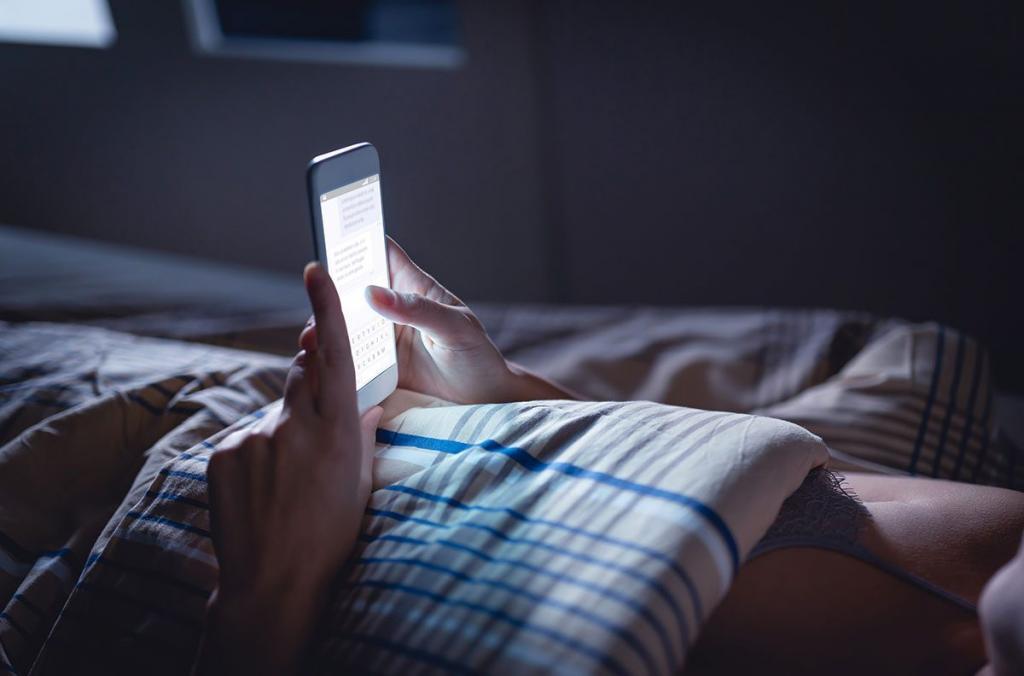
You find yourself unable to sleep in the middle of the night, so you grab your phone and check your social media feeds.
If something is keeping you awake at night, scrolling through Instagram can be a quick and easy way to get away from it. However, once your attention is drawn to the screen, you find it increasingly difficult to shut off. In other words, there’s no way out.
How does social media use affect sleep quality and how does it affect social media use and sleep quality?
- Sleep deprivation as a result of social media use at night
- Is social media used by insomniacs as a means of coping?
A new study looks into the possibility that nighttime social media use may potentially be a means for some people to cope with sleep problems, rather than causing them.
Positive steps you can take
Read more : How Meditation Can Treat Insomnia? Everything To Know!
Social media has a number of advantages, including the ability to connect individuals, bring families together, and keep us informed and entertained. It’s a bad idea to try to sleep while using social media, as they don’t get along.
We must be aware of how often and when we connect with one another. Your sleep can suffer if you use social media at night.
Disconnecting from social media and getting a better night’s sleep are both possible benefits of cutting back on your usage.
If possible, try to stop using your phone for at least 30 minutes before going to sleep.
Screen-free time will help you prepare for sleep instead of swiping through your phone’s notifications. Take a bath, read a book, or listen to music. Relaxation doesn’t have to include staring at a screen.
Keep your phone out of your bedroom at night, if at all feasible! A cheap alarm clock and a separate phone charger are all that are needed. If you want to get a good night’s sleep, your bedroom should be free of distractions and a relaxing haven where you can relax and unwind.
Please contact us at Sleepstation if you believe that social media is affecting your sleep patterns in a negative way. If you’re having trouble sleeping, we can help you get to the source of the problem and improve your evening routines.
Does Social Media Have an Effect on Sleep?
Checking Facebook, emailing, or reading the news before bed can keep us awake because of the stimulating effects of light from digital screens at night.
The blue light emitted by electronic screens has the biggest impact on sleep, while all light can interfere with our circadian rhythms, the 24-hour internal rhythms that drive activities like the sleep-wake cycle. Even at night when we should be sleeping, blue light keeps us awake because it activates the areas of our brain that are responsible for making us feel aware.
After falling asleep, many people check their phones to see if they’ve missed something important. About 21% of adults admit to waking up in the middle of the night to check their phones, putting them at even greater risk of sleep loss and the onset of a sleep disorder like insomnia.
Social media before bedtime may be too tempting to resist. Around one-fifth of those polled—hospital personnel and university students—reported that they use social media after going to bed, and nearly a fifth said they did so for an hour or more each night.
Fear of Missing Out
FOMO, or the fear of missing out, is a typical reason why people spend so much time on social media right before bed. With so many ways to connect, yet so little time in the day, social media presents us with an unsolvable predicament. FOMO is one way to deal with this problem, which is defined by an insatiable need to know what other people are up to and see.
FoMO makes it more probable that people will check their social media within 15 minutes of going to bed, which exacerbates sleep problems. They are also more likely to check their social media during inappropriate times, such as when they are in class or driving.
Social Media and Youth
The widespread perception is confirmed by research that young people are always glued to their smartphones. Around 95 percent of teens have access to a smartphone, and 45 percent say they’re online “nearly continuously,” which isn’t unexpected.
For today’s youth, social media can be both a blessing and a curse. On the one hand, it provides a forum for young people to express themselves and connect with others. Research has shown that adolescents who spend a lot of time on social media are more likely to suffer from mental health issues such as depression and anxiety.
Although there are numerous possible correlations between social media and mental health concerns in young people, a recent study suggests that social media’s effect on sleep habits is the most important one.
More time spent on screen-based activities such as social networking, web surfing, watching TV, and gaming resulted in adolescents having difficulty going asleep and getting less sleep at night, according to this study. As a result of these sleep disorders, sleeplessness and sadness became more prevalent.
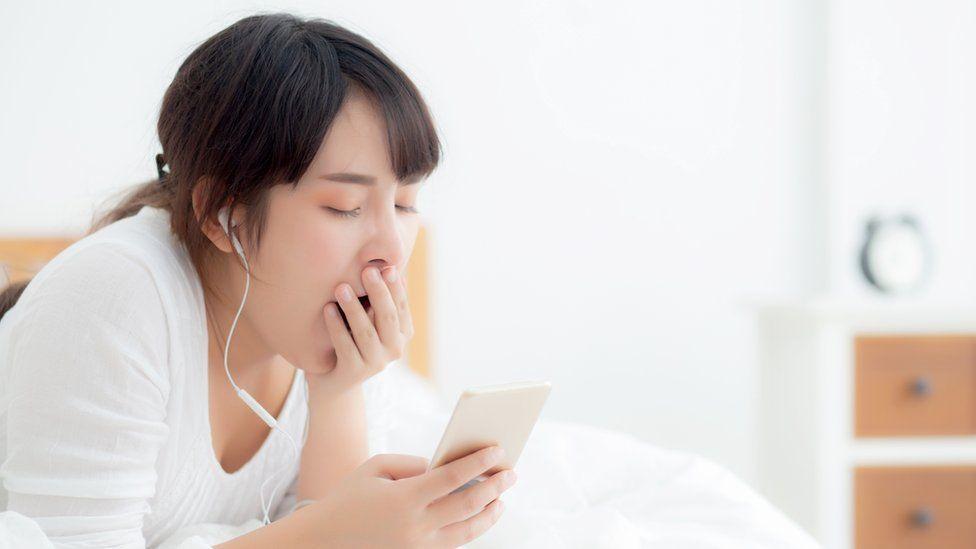
Tips for Using Social Media
Good sleep hygiene comprises strengthening sleep-promoting activities and decreasing sleep-harming ones, such as checking social media too close tonight. Because it’s so easy and convenient to check social media, it’s critical to make excellent social media habits a priority.
Here are a few pointers to help you keep tabs on your social media without interfering with your ability to get a good night’s sleep.
- Talk to your children about social media: Children and teenagers now have the ability to communicate with people from all over the world thanks to social media. Because of this, make sure that your children have the resources they need to succeed in a digital age.
- Make tuning-out a habit: Connecting with others via social media can be great, but we all need an occasional break from it. Every day, give yourself a few minutes of screen-free time, either during socializing, at dinner, or at night.
- Notice your FoMO: Anxiety can keep you up at night, but you can learn to deal with it so you don’t check your social media accounts out of habit. Relaxation activities can help you go asleep if you’re experiencing feelings of FOMO before night.
- Silence alerts and notifications: When you get a message or a social media update, most technological devices provide visual or auditory alerts. Having these on all the time can keep you up at night, heighten your fear of missing out, and lead to an unhealthy addiction to social media. Instead, experiment with muting or disabling your social media notifications and alerts.
- Charge your phone in a different room: To avoid accessing social media before going to sleep, you should keep your phone and computer out of the bedroom. Instead of having gadgets in your bedroom, store them in the office or kitchen, where they’ll be easily accessible when you need them but won’t encourage you to give up your sleep.
- Talk to a doctor or counselor: There are people that can assist you if social media is interfering with your sleep, employment, or personal relationships. Talk to your doctor, therapist, or counselor if you’ve attempted to cut back on social media but aren’t having much success. They may offer advice and recommendations on how to reduce screen time and improve your sleeping patterns.
Source: https://bestpillowsleepers.com
Category: Sleep Advisors






